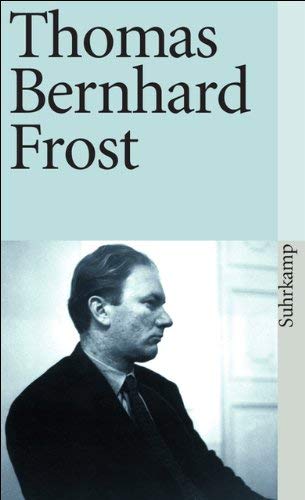What do you think?
Rate this book


Paperback Bunko
”The nights were sleepless dull grey…. Sometimes I jumped out of bed, and slowly I saw all thought become impossible, worthless, everything successively, logically became pointless and meaningless…. And I discovered my surroundings didn’t want to be explained by me.”Everything is futile. All that remains is being – existing. This as a theme pervades all of Bernhard’s novels as does the narrator as an earpiece for the 'hero' - the other. We learn that Strauch has long since burnt all his works as they remained a perpetual reminder of his worthlessness.
”Youth is an ornament. The mistake of age, on the other hand, is seeing the mistakes of youth.”Through the mouth of Strauch, Bernhard asks questions of us, like the questions he posits of the working class in ‘Twelfth Day’. These same questions could be asked today – though what we have now is a redefined class struggle; however these questions would have been serious at the time Bernhard wrote the novel as pertinent observations of the age. The weight of historicism is overbearing and struggle against it is futile. Life will grind you down to the lowest animalism. Is it observation or contempt to the point of hatred? It is the positing of opposites. The asking of questions; like a cry from the country to the metropolitan, against outsiders; it is anti-adventure, anti-testing oneself; the pulling strain on resources, venture against recklessness. Is he just being ironic given his complete hatred of the mundane? Bernhard makes it clear that he is not some astute prophetic saint of a writer. He bears grudges, he is irrational, bigoted, bitter, acerbic. Bernhard's view of the pastoral is as unromantic as it is possible to get. It is perfectly and extremely the complete opposite to the cutesy British bucolic country / rural bourgeois acceptance given by for instance British landscape painting. There is no rosy inner glow.
"Youth has no ideals, nor any masochistic notions, which come later. Then, admittedly, with lethal effect."
"It can happen that a young fellow can cease to be young in the midst of youth."
“Youth somehow pulled off the stunt of fooling the world for a brief moment.”
”My paintings were always well-reviewed except by myself”, he said. ”Basically, there is no criticism and the people that busy themselves with Art are as uncritical as at any time in history. Maybe it was the lack of criticism that irritated me, and that’s why I never became a good painter.”Those very questions could be just as well asked today in the age of an art world fed entirely on the juice of commerce.”The problem is that the world has become entrapped in this tinsel-isation of trivia.”
”Strauch’s language is the language of the heart muscle, a scandalous ‘cerebral’ pulse. It is rhythmic self-abasement under the ‘subliminal creak’ of his own rafters.”In this first novel it is as if Bernhard has laid himself out open and ready to be dissected like Soutine’s ‘Side of Beef’.
“Poverty can stare up at wealth and that is as near as it gets.”

The terrible truth is better than the balanced lie.